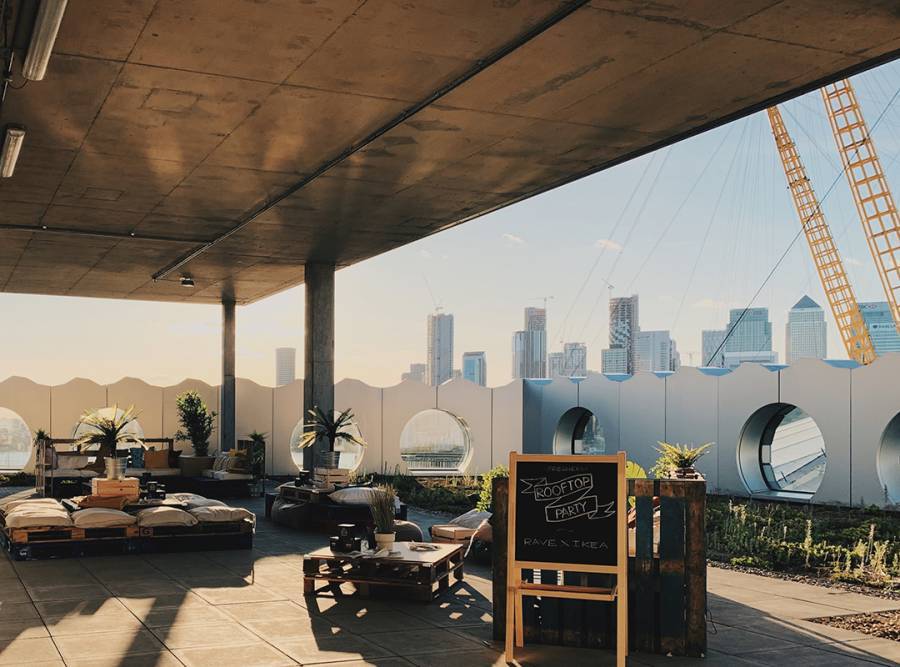Sustainability at Ravensbourne
At the forefront of everything we've done for over a decade

Welcome to our sustainability hub, where we shout about the exciting initiatives taking place across the university.
Exceeding targets
Exceeding targets
In 2010 we moved to our new home in North Greenwich, into a purpose-built building designed to cut carbon emissions and improve our facilities. As we have expanded, the green agenda has remained a core consideration, so much so that are exceeding our own targets by seven years.
In 2022 we set a target date of 2030 to switch to a 100% renewable energy tariff, which, by the end of 2023, we will have already done.
By introducing a renewable tariff, we will reduce our emissions by 51%, which will mean a reduction of 428 tonnes of carbon dioxide. For context, this is equivalent to emissions produced by 90 UK households an entire year.*
*Climate change insights, families and households, UK: August 2023 (Office for National Statistics, 11 Aug 2023)
Emissions Dashboard (UK Gov, 03 Apr 2023)
2050 Net Zero roadmap
We are already well on our way to meeting, and exceeding, targets set for the City of London, outlined in the London Environment Strategy 2050 Net Zero Roadmap. But we are always committed to doing more.
We are working hard to improve our sustainable infrastructure; this means updating the likes of hand dryers and water fountains inside the building, assembling solar panels and working with our community to plant more trees.
No ordinary building
We are a small university with only one campus, meaning our green footprint is already much smaller than larger institutions with multiple buildings and campuses.
What makes our building green?
Embedding sustainability within the curriculum
At Ravensbourne, our sustainable practices go a lot deeper than what can be measured in carbon emissions. It is about empowering the next generation of thinkers to create change and build a more hopeful future.
This is why sustainability is embedded deep within the curriculum. Across the full spectrum of our courses, students will learn how to build sustainability into their own practices.
They will find themselves working on live-project briefs with real clients to find creative ways to solve problems.














